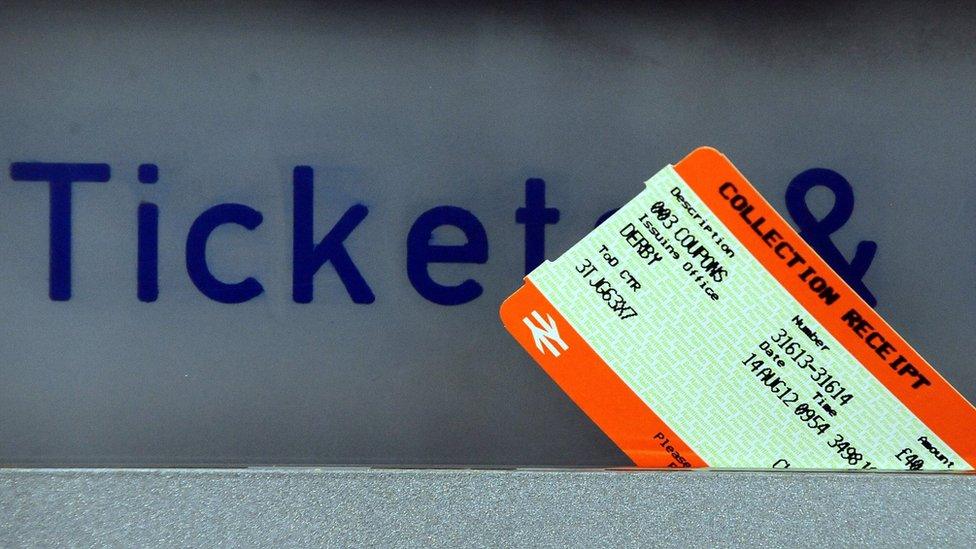Train fares to rise by average of 2.3%
- Published
- comments
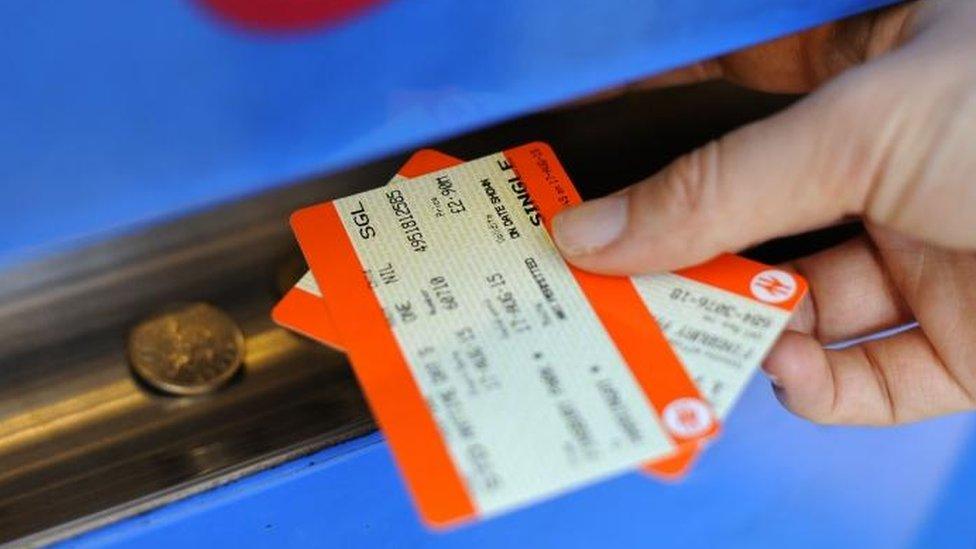
Train fares in Britain will go up by an average of 2.3% from 2 January, the rail industry has announced.
The increase covers both regulated fares, which includes season tickets, and unregulated fares, such as off-peak leisure tickets.
The rise in regulated fares had already been capped at July's Retail Prices Index inflation rate of 1.9%. Unregulated fares face no cap.
Campaigners said passengers would be disappointed by the increase.
"Passengers will now want to see the industry's investment deliver a more reliable day-to-day railway," said Anthony Smith, chief executive of the watchdog Transport Focus.
"The government should consider setting rail fare rises around the Consumer Prices Index instead to bring rail fares into line with other recognised measures of inflation."
Lizzie Green, a London commuter, said: "Given that the trains are so irregular and the delays are so often it seems like a bit of a cheeky increase."
Some unregulated fares are likely to rise by considerably more than 2.3%.
That far outstrips the inflation rate, which is currently running at 0.9%, as measured by the Consumer Prices Index.
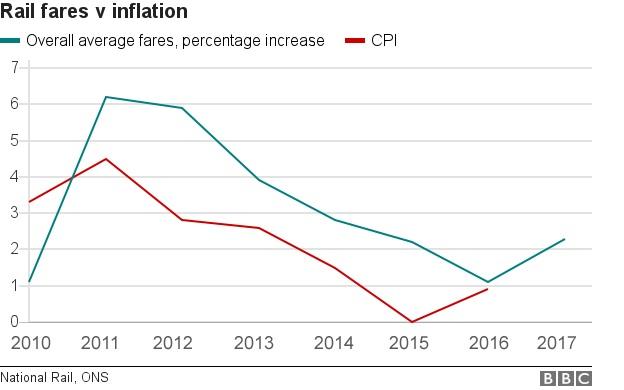

Analysis: Richard Westcott, BBC transport correspondent
The pace of fare increases has slowed a little in recent years, but it follows a decade's worth of steeper rises which began in 2004.
It's all because successive governments have changed the way they split the bill for running the service, so that passengers pay more and other taxpayers pay less.
About 70% of the total network cost is met from ticket sales now. It used to be about 50%.
Ministers are spending record amounts upgrading the service, which is creaking under huge demand for train travel that no-one saw coming.
But it hasn't stopped punctuality levels falling well below target.

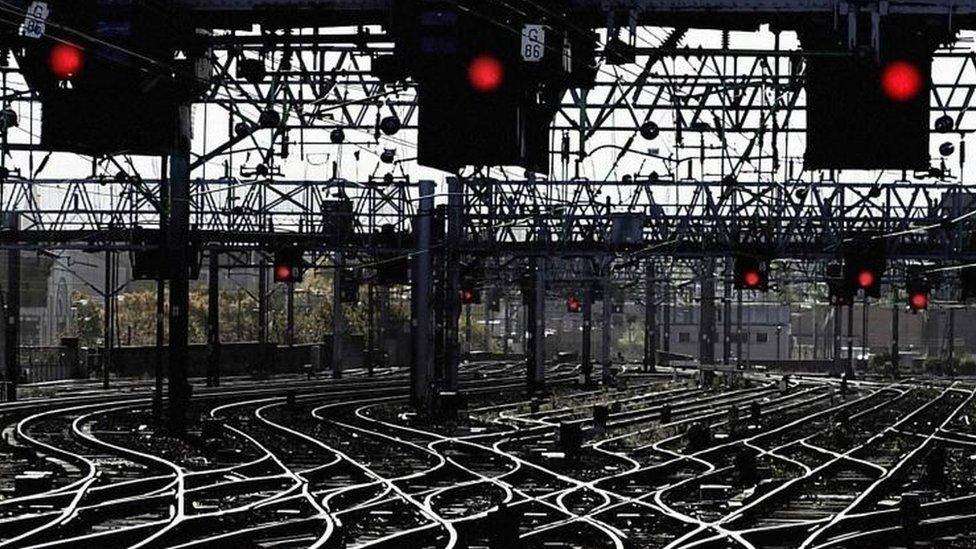
The Rail Delivery Group, which represents train operators and Network Rail, said the industry was working to simplify fares and improve services.
"We understand how passengers feel when fares go up, and we know that in some places they haven't always got the service they pay for," said Paul Plummer, chief executive of the Rail Delivery Group.
"Around 97p in every pound passengers pay goes back into running and improving services."
The overall 2.3% increase covers fares in England and Wales and Scottish policy as expected at the moment. Northern Ireland is treated separately.
Authorities in Scotland can set their own fare increases.
A Scottish government spokeswoman said: "No final decision has been taken on next year's fares in Scotland and we are looking at options before the end of the year."
She added that the government would consider a fare freeze if it could "enable us to reduce costs to passengers while still delivering our ambitious infrastructure programme".
Compensation
Meanwhile, more than 84,000 passengers on Southern Rail are to receive compensation for the disruption they have experienced during 2016.
The government said the delays were caused by "Network Rail track failures, engineering works, unacceptably poor performance by the operator and the actions of the RMT union."
It has set aside £15m to pay commuters.
Season ticket holders will be able to claim a month's compensation, directly into their bank account.
To qualify, customers must have paid for at least 12 weeks of travel, between 24 April and 31 December 2016.
From 11 December passengers on Southern Rail will additionally be able to claim compensation if their train is more than 15 minutes late.
- Published2 December 2016
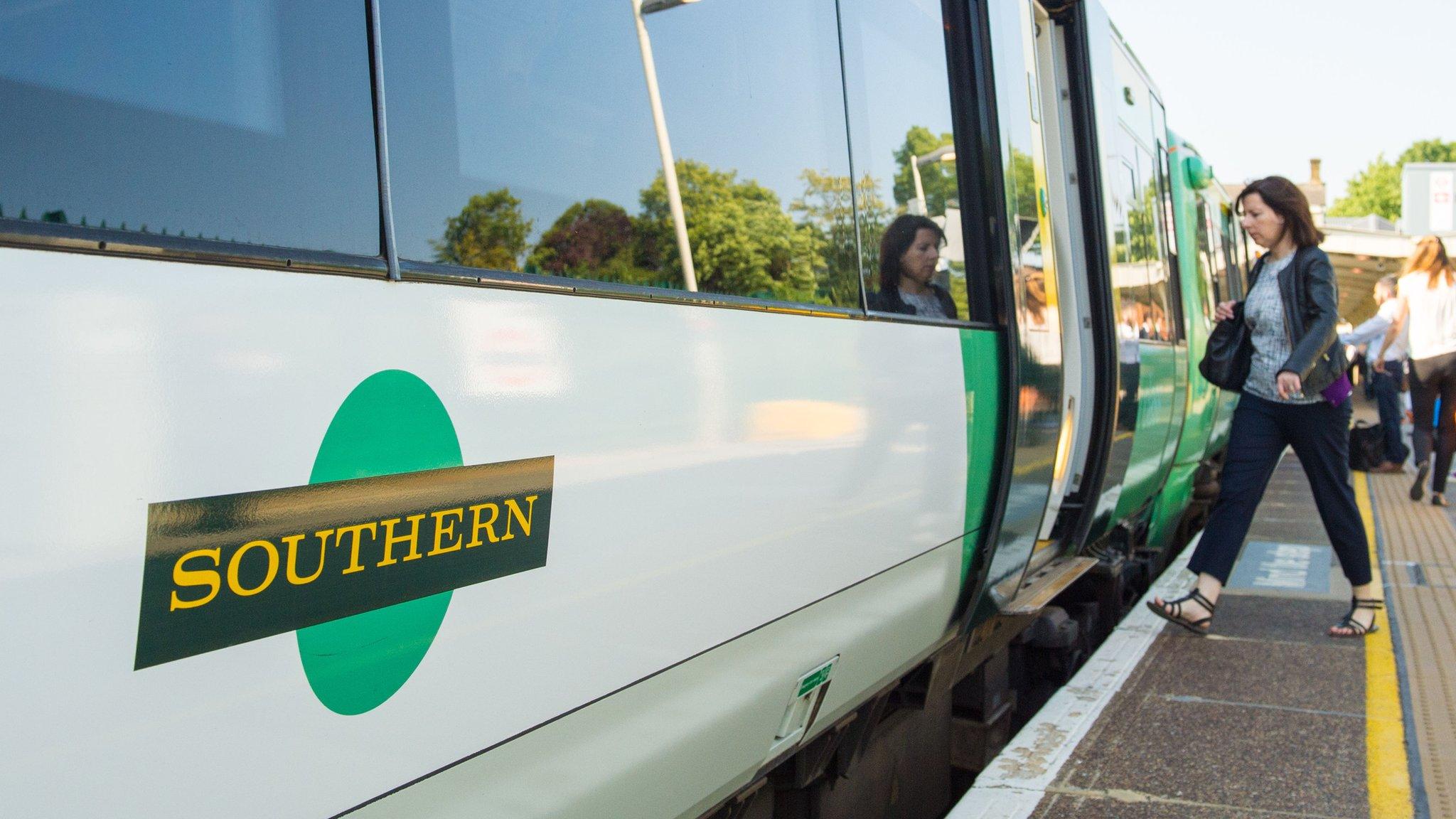
- Published16 August 2016
